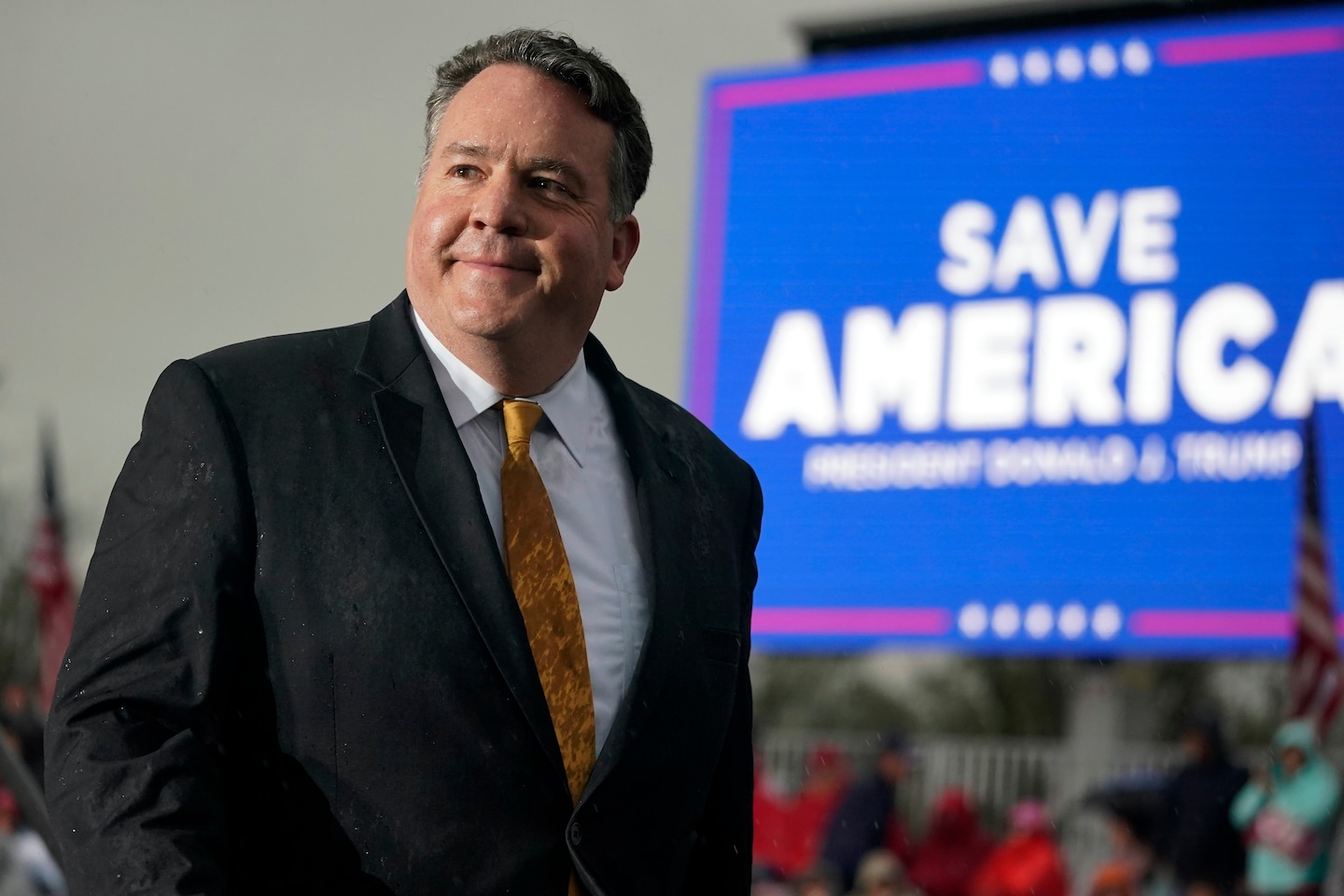Republicans have a good shot at taking back both chambers of Congress in November’s midterm elections.
Takeaways from West Virginia and Nebraska GOP primaries

1. Trump’s first big primary loss of the season
Last week, former president Donald Trump’s somewhat risky endorsement of J.D. Vance in Ohio’s contentious GOP Senate primary paid off when Vance prevailed over candidates whom other top Republicans had endorsed.
This week, his even riskier endorsement for governor in Nebraska did not. Trump endorsed one of his political donors, Charles Herbster, who is accused by eight women, including a Republican state senator, of inappropriately touching them. Herbster has denied the allegations. Trump stood by Herbster even though the Nebraska Republican establishment endorsed University of Nebraska Regent Jim Pillen. Pillen won the race, even as state Sen. Brett Lindstrom tried to carve out a path between the dueling candidates by running what he framed as a positive campaign. Herbster trailed the two most of the night.
Earlier in this election cycle, Trump had endorsed another candidate with a messy personal history who did not end up winning his race: Sean Parnell dropped out of the GOP Pennsylvania Senate contest after losing custody of his children in a divorce battle in which his wife accused him of domestic violence.
It’s still early in the season, but Trump is now 2 for 4 in major endorsements for statewide races — if you include his endorsement of Gov. Greg Abbott (R) of Texas, who had an easy win in March, along with Vance in Ohio. But in addition to Herbster’s loss, the scandal-plagued Texas attorney general, Ken Paxton (R), was forced into a runoff despite Trump’s endorsement as he faces serious legal issues.
Trump did have a big win Tuesday night in a West Virginia House race, which brings us to our next takeaway.
2. Mixed results for Trump’s efforts to avenge Biden’s bipartisan infrastructure bill
In West Virginia, Trump went after a House Republican who voted for the bipartisan infrastructure bill, arguing it handed a political win to President Biden. Rep. David B. McKinley (R) campaigned anyway on bringing highway funds to his district, arguing it was good policy and good politics. He also angered Trump by voting to create a commission to investigate the Jan. 6, 2021, Capitol attack (although he voted against the bipartisan congressional committee that Democrats ultimately stood up).
While McKinley had the support of West Virginia’s governor and one of the biggest names in West Virginia politics, Sen. Joe Manchin III (D), he lost to fellow House Republican Rep. Alex Mooney. Mooney didn’t vote for the infrastructure bill and courted Trump’s endorsement. Trump taped a radio ad for Mooney and campaigned with him.
And Trump took credit for Mooney’s win before it even happened.
“Alex is in a big race,” Trump said Friday while rallying for Mooney, as The Post’s David Weigel reported. “That’s one of the races they keep saying, ‘Is Mooney going to win because Mooney is being backed by Trump?’ ”
But in Nebraska, Rep. Don Bacon (R) didn’t have a serious primary challenge after he voted for the infrastructure package. Trump gave a shout-out to Bacon’s one challenger, roofer Steve Kuehl, at a rally, calling him a “nice guy,” but largely stayed out of the race, Weigel reported. Bacon easily won his primary last night with 77 percent of the vote.
3. Election deniers don’t make it very far in a secretary of state primary
Since leaving office, Trump has focused on encouraging secretary of state candidates who deny the results of the 2020 presidential election.
The early evidence suggests that GOP grass-roots energy for election deniers is strong; Michigan Republicans recently nominated one of the loudest, Kristina Karamo. But in Nebraska, two Republican first-time candidates, making nominal challenges to Republican Secretary of State Bob Evnen on baseless fraud claims, failed to unseat him in the primary. If you combine the votes of the two election-deniers vying to run Nebraska’s elections, however, they got more votes than Evnen.
Despite those primary challenges, Evnen held firm in his statements that the votes in Nebraska were correctly counted: Trump won four of the state’s electoral votes, but Biden took one electoral vote by winning Nebraska’s 2nd Congressional District. (Nebraska and Maine split up their electoral votes for president by congressional district and popular vote.)
Evnen put out a 20-page PowerPoint addressing every allegation of voter fraud that activists in his party made, the Nebraska Examiner reported. “There’s a lot of speculation about what could happen, but there isn’t any evidence that it did,” he told the Nebraska Examiner. “There’s lots of evidence it didn’t.”






